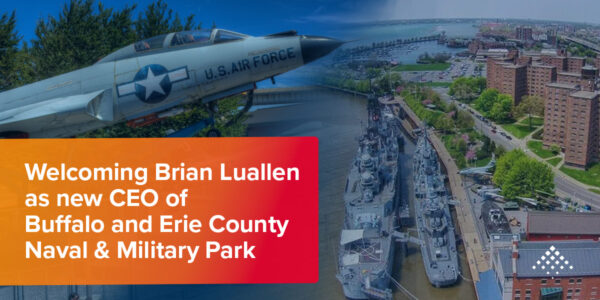TalentRise President Pete Petrella recently appeared on Hunt Scanlon’s Talent Talks podcast to discuss the rapidly changing landscape of executive search and leadership development. Here are the key insights from that conversation.
The executive search industry has undergone remarkable transformation in recent years, with artificial intelligence reshaping how firms source, assess, and place top talent. Yet as technology advances, the human element becomes more critical than ever. In a recent episode of Hunt Scanlon’s Talent Talks podcast, TalentRise President Pete Petrella shared his perspective on navigating this evolving landscape while maintaining the personal touch that drives successful placements.
The Changing Face of Executive Search
When asked about how TalentRise approaches executive search differently today, Pete emphasized that while hard skills assessment remains core to the process, the focus has dramatically shifted toward soft skills evaluation. “Those soft skills are mattering as much or if not more than hard skills,” he explained. This includes assessing emotional intelligence, adaptability, resilience, and cultural impact—factors that determine whether a leader will truly thrive in their new environment.
The transformation has been particularly pronounced in recent years. “There’s been a ton of change in what we do and how we do it,” Pete noted, highlighting how firms must continuously evolve to meet client expectations while maintaining their core value proposition.
AI as a Force Multiplier, Not a Replacement
Perhaps the most significant shift in executive search has been the integration of artificial intelligence. Pete acknowledges that AI has “changed the game” by providing new tools that enable greater efficiency and speed in routine tasks. From notetaking and report generation to initial candidate sourcing and job description development, AI allows search professionals to start from “the 50% to 60% range of getting something done” rather than beginning from scratch.
However, Pete is clear that AI serves as a force multiplier rather than a replacement for human expertise. “AI isn’t coming for your jobs, but people who know how to enable and maximize AI are coming for your jobs,” he shared, referencing insights from a recent Hunt Scanlon conference.
The efficiency gains from AI enable TalentRise to redirect time and energy toward higher-value activities, those uniquely human capabilities that drive successful placements.
The Irreplaceable Human Touch
While AI excels at routine tasks, Pete emphasized several areas where human insight remains irreplaceable:
Deep Relationship Building: Executive search involves highly confidential, vulnerable conversations. Whether candidates are considering leaving their current roles or clients are planning leadership transitions, these interactions require trust and discretion that only human relationships can provide.
Cultural Assessment and Fit: Understanding organizational culture and how a candidate will mesh within that environment requires nuanced interpretation of tone, body language, and unspoken concerns—areas where AI currently falls short.
Breakthrough Moments: Both in search and coaching, there are pivotal “aha moments” that emerge from human connection and intuition. These breakthrough insights can’t be programmed or predicted by algorithms.
Complex Soft Skills Evaluation: While AI can process data points, assessing how someone will navigate cultural dynamics, build relationships, and lead through change requires human judgment and experience.
Supporting Leaders Through Transition
TalentRise’s commitment to the human element extends beyond placement through our 90-Day Fast Start Coaching Program. This initiative recognizes that successful placements require ongoing support during the first critical months in a new role.
The program focuses on two key areas:
Habit Activation: Helping newly placed executives establish productive routines and practices that will serve them in their new environment.
Relationship Development: Perhaps most importantly, coaching leaders on how to navigate and understand their new organization’s culture. As Pete noted, “culture eats strategy for breakfast”—without cultural alignment, even the most capable leaders can struggle.
This approach addresses a common challenge: new executives are often overwhelmed with immediate deliverables while lacking the cultural context needed for long-term success. The coaching program ensures that relationship building and cultural integration receive the attention they deserve.
The Private Equity Challenge
Private equity environments present unique challenges that showcase why the human element remains so critical. PE firms move fast, have aggressive growth targets, and need leaders who can drive transformational change under intense pressure.
“The number one thing that can make or break their investment is having the right talent in that company,” Pete explained. This reality demands a deep understanding of the PE operating model, including tight capital structures, aggressive timelines, and the specific type of leader who thrives in such environments.
Success in PE search requires extensive upfront knowledge transfer and the ability to become a true subject matter expert on both the investment thesis and the leadership profile needed to execute it. AI can assist with research and documentation, but the nuanced understanding of fit and cultural alignment requires human expertise.
Advice for the Industry
For executive search and talent leaders navigating this rapidly evolving landscape, Pete offers clear guidance: embrace AI for efficiency while doubling down on uniquely human capabilities.
“You really need to know how to find the right person with the right mix of soft and hard skills that’s going to fit the role,” he advised. This requires becoming a true subject matter expert on each client organization—understanding their value propositions, culture, and success factors well enough to serve as an authentic advocate and ambassador.
The goal is to leverage AI for repetitive tasks while investing the saved time in deeper client relationships, more thorough candidate assessment, and more strategic counsel.
A Word of Caution
While enthusiastic about AI’s potential, Pete also issued an important warning about responsible implementation. AI systems can introduce significant bias and may present misleading information. “Use AI wisely, but don’t replace the human touch,” he cautioned, particularly when assessing and coaching talent.
This balanced perspective reflects TalentRise’s approach: embracing technological innovation while maintaining the human-centered values that drive successful placements and lasting client relationships.
Looking Ahead
The executive search industry will continue evolving as AI capabilities expand and client expectations shift. However, Pete’s insights suggest that firms focus on the uniquely human elements of the business—relationship. Are you looking to hire your next executive? Contact TalentRise today!



